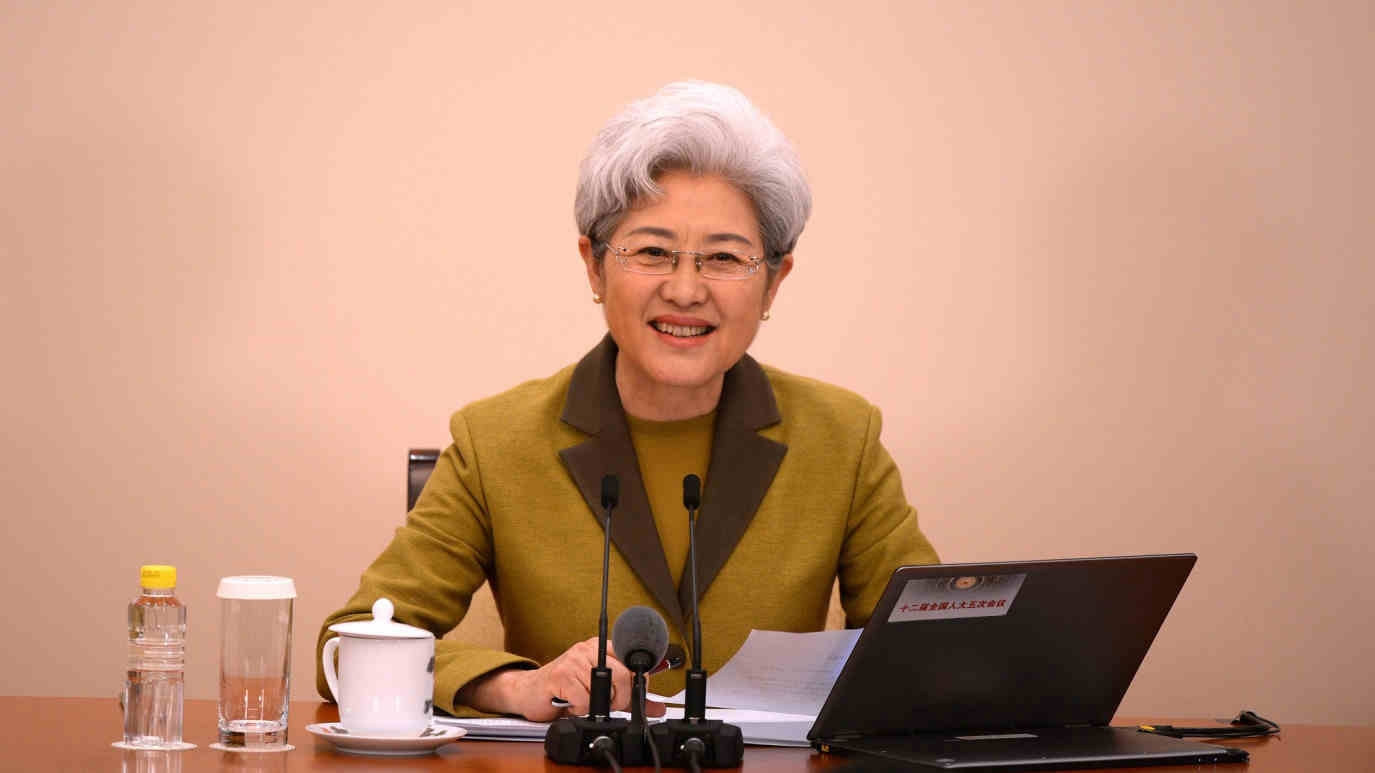The New York Times published an article on Tuesday by Fu Ying, a former ambassador and vice foreign minister in China. The article, entitled "Cooperative competition is possible between China and the US,”shed light on complicated relationship between the world’s two leading powers.

File photo of Fu Ying
In her article, Fu said, “China-US relations have suffered serious damage over the past four years.”The US side misinterpreted or even adopted a hostile attitude toward China's policies and moves, such as the Belt and Road Initiative, in the past few years only because it believes that China is seeking geopolitical dominance.
The whole world is seeing that the relationship between China and US, one of the most important bilateral relationships around the globe, has been growing tense in recent years. However, the relationship can still be refreshed, Fu said in her article.
"To refresh the relationship, each side must accurately assess the other’s intentions." The two countries need to build mutual understanding and trust rather than risking confrontation. Even if competition cannot be avoided, it is possible for the two countries to join hands and develop a relationship of “coopetition” (a portmanteau of cooperation and competition) by addressing each other’s concerns.
Fu reiterated China's position on some important issues such as intellectual property protection, cybersecurity and privacy, noting that China is now making dedicated efforts in all these areas. For the US part, government bullying over some Chinese high-tech companies should be stopped and a level playing field in the US should be established.
"On the political front, it is high time that the United States drop its habit of interfering in other countries’ internal affairs,” said Fu. It is hoped that Washington will learn from its unsuccessful interventions over the past few decades and show full respect for development paths chosen by other countries. China, on the other hand, should be more proactive in providing the rest of the world firsthand information about what the country stands for and why it is doing what it is doing. Only in this way can a calmer atmosphere be cultivated.
"In the security field, both countries shoulder responsibilities for ensuring that the peace and tranquility that the Asia-Pacific region has enjoyed over the years continues to last.” According to Fu, Washington should stop challenging China on the Taiwan problem and other territorial disputes in the South China Sea. Chinese military is emerging as a strong military power, but this does not mean the two countries cannot coexist. The two sides should avoid misunderstandings and unexpected conflicts by establishing mechanisms to effectively manage potential crises.
The most urgent problem is to contain the spread of coronavirus pandemic. Scientists from both countries should be encouraged to cooperate in information sharing and vaccine development to help the whole world. Climate change is another area that needs urgent attention. China and the US should play leading roles in honoring commitments in energy conservation and emission reduction.
Fu concluded her article by proposing a way forward for the two countries. "To tackle these challenges, China and the United States should join hands and cooperate with all other concerned parties. Only then can multilateralism continue to bring hope for the betterment of humankind."


